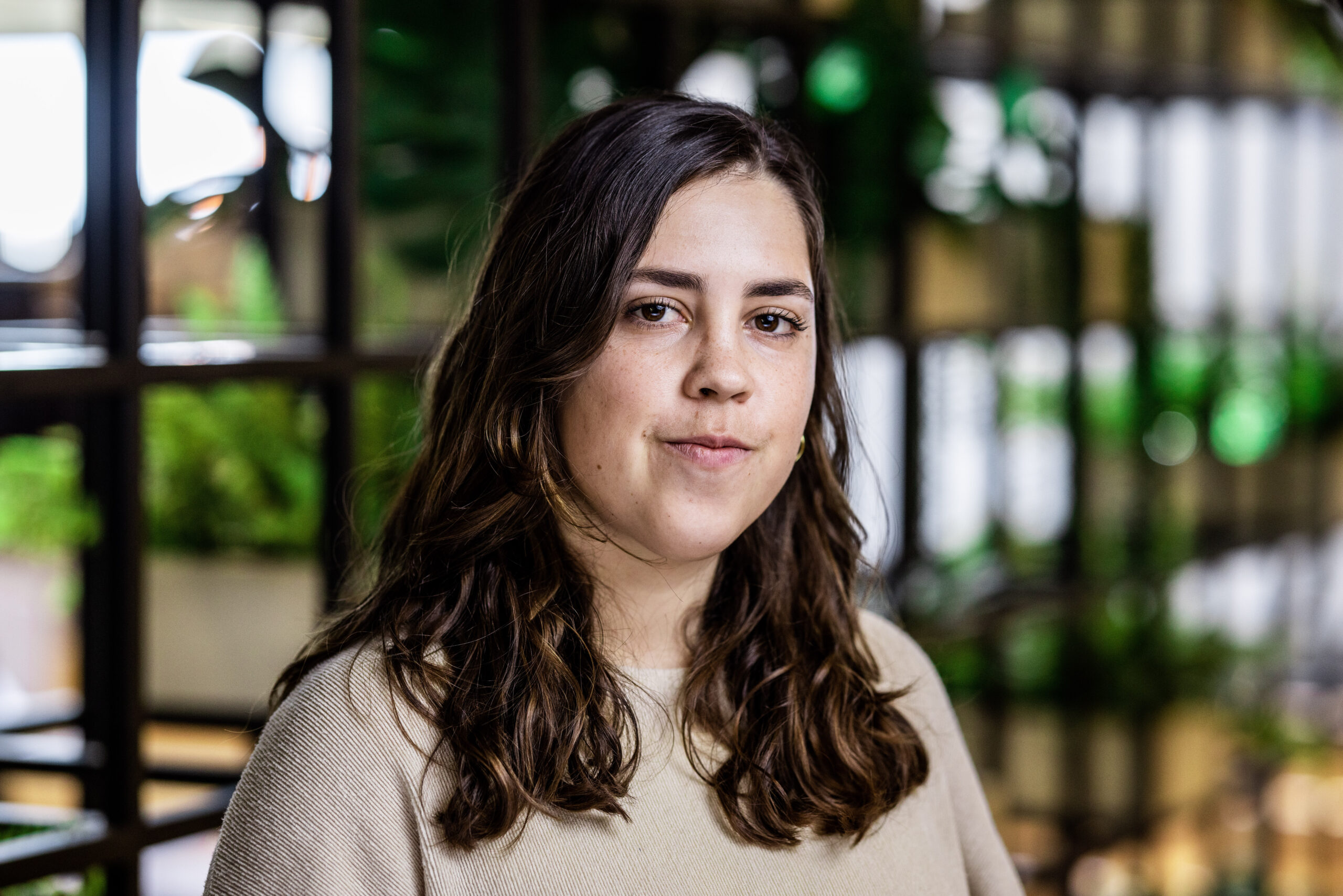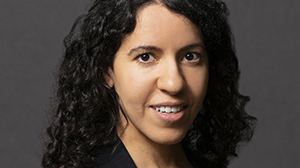Michaela Ramm is a healthcare reporter for the Des Moines Register. An Iowa native and graduate of Iowa State University’s Greenlee School of Journalism and Communication, Ramm joined the Poynter-Koch Media and Journalism Fellowship in the summer of 2020, in the middle of a global pandemic and at a time of racial unrest. At the time she was a healthcare reporter for the Cedar Rapids, Iowa, Gazette. We talked to Ramm about how the Poynter-Koch Fellowship helped her identify stories worth telling and build the skills she needed to take the next step in her career.
POYNTER-KOCH: Why were you interested in the Poynter-Koch Fellowship?
RAMM: Colleagues at the Gazette had gone through the program — I actually watched them as they did. Like me, they were early career reporters, so I raised my hand when my editor brought up the opportunity again. I was about three years into my career so was comfortable with how to do my job, but wanted to bring myself to the next level. I wanted to continue to learn and thought, what better way to do that than from the best journalists in the industry? I also knew the fellowship provided training for things like how to file records requests and how to compile data.
Tell me about some of the practical skills you honed and how they’ve come into play in your work.
A big part of my job is reporting on the government. One story I’m proud of concerned a recent decision by the state attorney general to stop providing reimbursement for certain healthcare services for sexual assault victims. Healthcare providers and victims’ advocates were unaware of this change until we reported on it. We’d heard rumors about the decision, and the attorney general’s office confirmed it when we reached out. I’ve been filing some public records requests to follow-up and published a story a couple weeks ago about those records. Before the fellowship, public records requests intimidated me even though I knew they were essential to guaranteeing openness by government.
In addition to diving deeply into how to file effective requests, the fellowship touched on negotiating salaries and issues like how to avoid burnout, which is a huge problem in the industry. It was reassuring to have these established journalists say, yes, take breaks, and it was validating — especially as a person who sometimes felt she had to work all night to get things done.
As part of the fellowship, you developed a virtual mentorship model for the Gazette. Tell me about that.
My fellowship started in the summer of 2020. We were in pandemic lockdown mode. I missed the camaraderie of being in the newsroom together, bouncing ideas off each other. The Gazette also had three new reporters and I felt for them. How difficult it is to start your career remotely! I created an internal reporter mentorship program where we met virtually to discuss story ideas outside of the formal editor pitch meeting. I work remotely now for The Register so I utilize this model informally at my current job to stay connected to my colleagues and what is happening in Des Moines.
In addition to honing practical skills, the fellowship gives reporters the chance to discuss the principles that provide a foundation for good journalism. Can you tell me about this aspect of the program?
The George Floyd protests were happening right as I started the fellowship. We met with reporters covering those events and they addressed the fundamental distrust marginalized communities have for the media. We talked about how to remain open even when the people you’re talking to are not; how to have that honest conversation about what reservations they might have about talking to reporters. We discussed how to do the extra work, how to exercise deep listening skills, and how to be transparent about why we want to talk to them. Those are the things I think about every day.
We also discussed the impact we have on readers, and the unseen ripple effects that can come from our stories. How do we approach communities when we have failed them before? I learned openness, transparency, and deeper listening can help overcome past failures.
Has your experience in the fellowship changed how you report at all?
Earlier in my career, I thought you had to be rigid and divorced from what the other person is experiencing. Now, I think more about where my subjects are coming from, which is especially helpful when covering some of the healthcare issues Iowa lawmakers are grappling with now. The healthcare beat is policy-heavy and it can be easy to get stuck in minutiae. The conversations we had in the fellowship helped me be more person-forward in my reporting — to consider why a lay person should care about a policy. I think about how I can I reach the people who typically don’t have a voice in the news.
I also think differently about the stories I choose to cover. Newsrooms are shrinking, and reporters are asked to do more. It can be alluring to simply try to fill a paper, especially a daily, rather than do stories that matter. The fellowship helped us think about the why behind a story. It encouraged me to spend time on things that are worthwhile — not just to preserve my own sense of purpose about my job, but for the communities I’m trying to cover. My readers don’t want me to rewrite a press release. They want to know why an issue has meaning.


